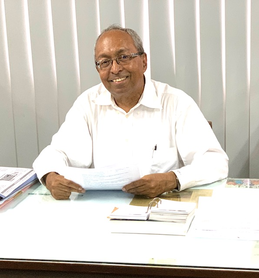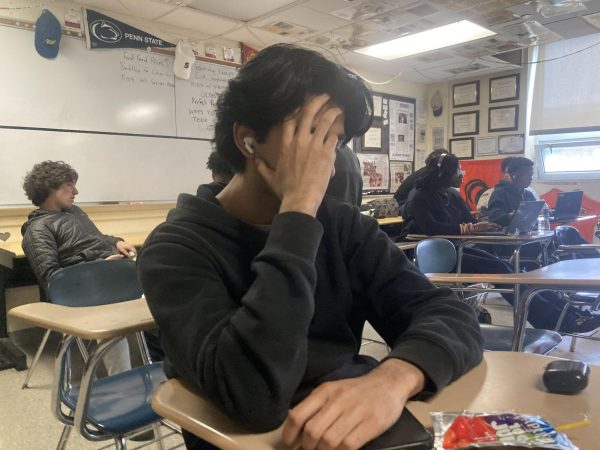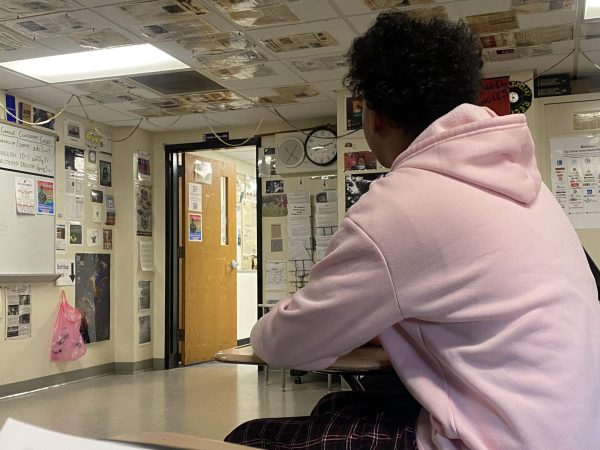An Interview with an SHS DACA Recipient
October 5, 2017
Editor’s Note: A version of this story was published in the Stamford Advocate.
- It seems like the fight about immigration reform won’t come to an end. Everywhere in the U.S., there is controversy regarding President Trump’s plans to increase border security and enforce immigration policies for undocumented immigrants currently residing in the United States. In early September, Trump announced his decision to end DACA, an executive order passed by former President Obama in 2012, granting undocumented children who arrived to the United States status as dependents grants to work. For many of you reading, this action is nothing more than another political policy; you see it flicker on your television screen for a moment before you go about your daily activities. However, for many students right here at Stamford High, this decision could affect the way their lives work forever. Recently, I had the chance to talk to a Stamford High student who is also a DACA recipient, and gain perspective on just how significant this action was. Here is their story.
Editor’s Note: Due to the sensitive nature of the topic, The Round Table has decided to grant this student anonymity, which deviates from our usual editorial policy of identifying all sources.
Q: When did you first apply for DACA?
A: I applied in the fall of 2016.
Q: Okay, and what were your initial thoughts about DACA?
A: Well my mother and I both knew about the program when it first started, so we waited until I was sixteen because by then I’d be qualified to apply, which was relieving. I used to think college was some unattainable thing I could never afford because of my status, but the executive action gave me hope.
Q: So prior to DACA, did you hear about options for undocumented kids from administration or guidance? Or maybe there weren’t really that many options?
A: I never personally sought information because I didn’t think there were any programs, and the few that were there were mainly from private grants that were merit based which made them harder to get.
Q: Speaking of which: what were some of the benefits and flaws that you saw with DACA? Personally speaking, what did you feel were its best and worst traits?
A: The best trait was its efficiency. The USCIS didn’t make the filing process difficult and they were concise with filing and telling you your benefits. The main issue was that you still had no legal status. I couldn’t qualify for any federal welfare programs or federal student aid.
Q: That includes FAFSA and CSS for College Board, right? And in terms of legality, did this help with any private scholarships or loans, or were those still hard to get?
A: I was able to qualify for a scholarship from the DREAM program, and now I’m able to apply for scholarships and programs that require social security numbers.
Q: Okay, so present-day status: are any of these scholarships still available for you now? Is the Dream Program still running for 2018?
A: It will still run, and I’ll keep my deferred status until the end of 2018.
Q: And after that it’s really up in the air until Congress makes a decision?
A: It is. I don’t know about Trump’s actions, but I doubt Congress will pull through together.
Q: And speaking of Congress, if there was any advice you could suggest about them making changes to DACA, what would you advise?
A: DACA needs to be more specific about deferred people’s abilities to do things. Banks, for example, have no idea about loaning to people with DACA, and private student loans don’t even lend to DACA kids. Along with that there need to be better definitions on things like applying for schools, since some schools allow DACA kids to apply like normal but some kids have to apply like they’re international students. And you know, a path to attaining a green card would be ideal.
Q: Yeah, it seems like there was a lot of gray area that came with DACA. So has this changed your plans for the future? Like in terms of applying to college later?
A: Well, the actual announcement changes nothing. And I fully plan on finding a way to stay, because this is my country. I am an American in everything but citizenship. There’s no country I’d rather be in than the USA.














